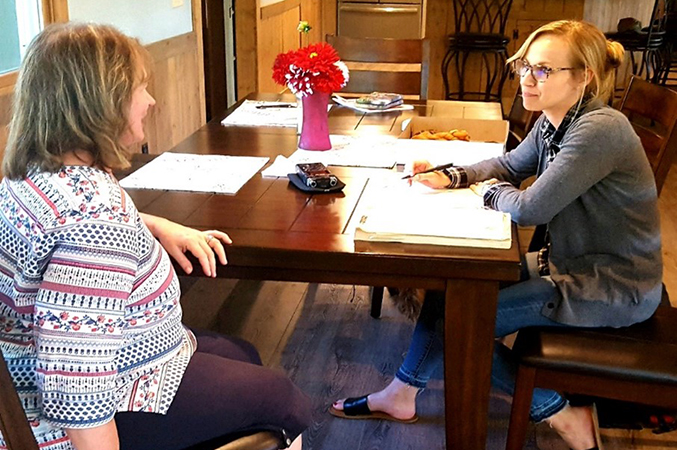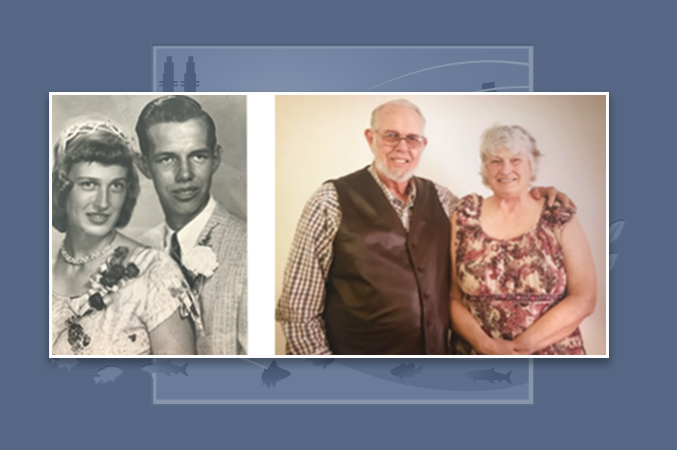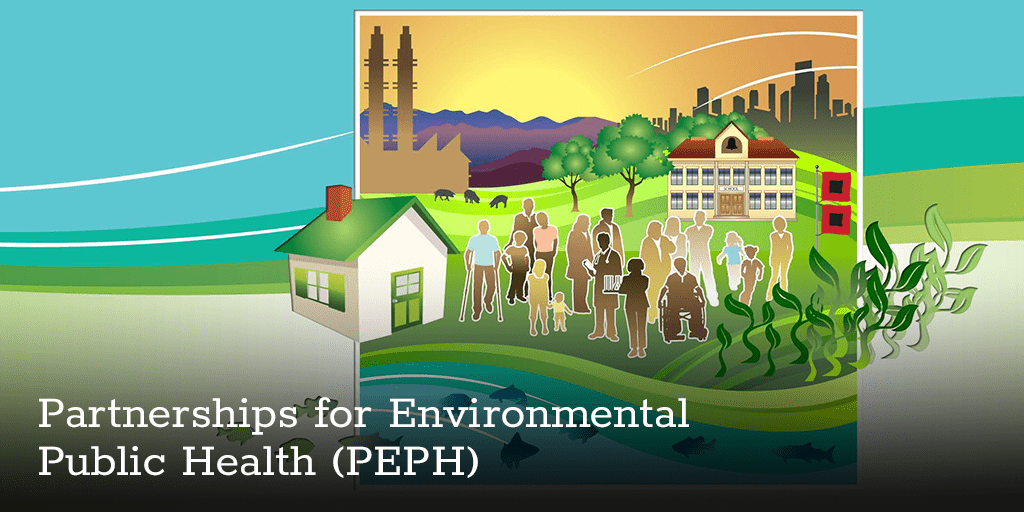Learning from past environmental disasters can help inform the response to future ones. This is the premise of research conducted by a team from Emory University, the University of Michigan, Central Michigan University, and community partners. A December 2022 paper describes the team’s 2018 efforts to collect and analyze oral histories from people who experienced the aftermath of polybrominated biphenyl (PBB) contamination in Michigan in 1973. The contamination occurred when a manufacturer mistakenly distributed flame retardant instead of livestock feed components to Michigan farmers.
In addition to cattle and other farm animals being sickened by contaminated food, those who consumed meat, milk, and eggs from those animals were exposed to PBB. Once farmers and residents became aware of the contamination, they began to engage with state officials, the Michigan Farm Bureau, and others to understand the situation. Testing revealed residents had PBB in their bodies, and residents subsequently undertook efforts to understand the health effects of exposure.
Photo of a Michigan PBB Registry participant’s farm in the late 1970s. (Photo courtesy of Bonnie Davis for the Michigan PBB Oral History Project)
“The oral histories we gathered formed a picture of how Michigan residents during and after the 1973 PBB contamination event sought to understand how they were affected by the exposure,” reflected Erin Lebow-Skelley, M.P.H., Community Engagement Manager of the HERCULES Exposome Research Center at the Emory University, Rollins School of Public Health, and one of the researchers on the team. “Our analysis shows the various ways that people sought environmental health knowledge, and what we can learn from these events to promote health literacy in disaster response.”
The team’s results also demonstrate the importance of a community’s skills in response to contamination. Although this event occurred 50 years ago, the researchers believe the experiences of those who were affected by the event can inform contemporary response to contamination events and other disasters. This community-academic team proposes a new framework for environmental health literacy that incorporates these findings and resonates with modern-day environmental response.
Gathering and Analyzing Oral History Data
Oral histories were collected from 2018-2019 in the Michigan PBB Registry, a collection of research into PBB in Michigan. The registry was founded in 1975 to conduct surveillance into PBB exposure among Michigan residents. The PBB Registry’s Leadership Team initiated the oral history project to better understand the experiences of those affected by the contamination. The Leadership Team consists of representatives from the PBB Citizens Advisory Board, Pine River Superfund Citizens Task Force, Mid-Michigan District Health Department, and Emory University researchers. They are tasked with maintaining the Michigan PBB Registry, conducting outreach on PBB with policymakers and state agencies, and engaging with the community.
Project staff recruited interviewees at community meetings, through prior participation in PBB research, and through recommendations from the Leadership Team. Researchers conducted 68 interviews with residents who represented diverse perspectives and included stakeholder groups such as farmers and their families, consumers of farm products, former employees of the chemical manufacturer, attorneys, and veterinarians.

Fremion conducting an oral history interview. (Photo courtesy of Brittany Fremion)
After analyzing the interviews, researchers found that interviewees reflected on five central themes:
- Community leadership, knowledge, and skills in action.
- Contesting community knowledge.
- Human impacts of uncertainty.
- Inaction and loss of trust in institutions.
- Seeking information; building knowledge and understanding in the midst of uncertainty.
Researchers also found that the data reflected several cross-cutting themes, including uncertainty, inaction/action, and community skills and resources.
For example, an interviewee described an experience engaging with a farmer and prominent advocate, Rick Halbert, who was responsible for sounding the alarm on PBB contamination by taking samples from cows and sending them for laboratory testing. These comments represent the community leadership theme. The description related to the cross-cutting themes “community skills and resources” and “inaction/action.”
As quoted in the article, the interviewee stated, “Rick said ‘There is something wrong here’ … he sent [samples of cattle feed supplement] off to an independent lab and it came back and there was [PBB] in there.”
Oral history themes related to seeking knowledge are reflected in stories of how farmers began noticing sick farm animals and reported the issues to the Farm Bureau. The cause was unknown, but some farmers expressed concern about the feed. The Farm Bureau sided with the manufacturer, which had asserted it did not distribute contaminated products, and officials insisted farmers’ own practices were causing illness. Such stories were categorized as “contesting community knowledge.” The state conducted tests only after being notified of independent findings initiated by Rick Halbert. By that time, animal-based products had entered the food supply, resulting in exposure to PBB among an estimated 8 million Michigan residents.
Many oral histories also tell of residents who worried about their health, relating to the themes “human impacts of uncertainty,” and “loss of trust in institutions” due to lack of coordinated state response. Advocacy efforts encouraged the state to remove all contaminated food products from stores in 1975. Efforts also focused on understanding the health effects of PBB exposure, resulting in the founding of the Michigan PBB Registry.
“Many of the people that were interviewed were personally affected by the PBB contamination. There were economic, social, emotional, and health impacts on their families. Some have been involved with PBB research or engaged with PBB outreach efforts for many years. Some had not spoken about their feelings for a very long time. We felt it was important to capture their stories,” stated co-author Norm Keon, epidemiologist at the Mid-Michigan District Health Department and member of the PBB Leadership Team. “They provided a wealth of knowledge and emotions about their experiences that can be learned from.”

Hubert and Martha Zuiderveen, participants in the Michigan PBB Registry, who were interviewed for the Michigan PBB Oral History Project. Photos show the Zuiderveens in the 1960s and early 2000s. (Photos courtesy of the Zuiderveens for the Michigan PBB Oral History Project)
The Importance of Community Expertise in Disaster Response
Analyzing the oral histories helped researchers understand how individuals sought information on PBB contamination and how they acted to protect their health and well-being. This provides valuable insight into environmental health literacy and how those affected by contaminants contribute to community response.
“In a contamination event such as this one, there may be a number of unknowns about the contaminant and how it affects human health,” stated Brittany Fremion, Ph.D., associate professor at Central Michigan University, and one of the team’s researchers. “These oral histories show that the community members’ expertise and knowledge, such as that of farmers who knew their cattle were sick before the issue was officially acknowledged by the state or researchers, should be taken into account as a central component of environmental health literacy.”
Researchers developed a conceptual framework by incorporating the themes from their oral history analysis, showing how the community’s skills grow through its leadership and actions to seek knowledge, overcome mistrust in institutions, and address contamination and health effects. Based on their findings, the community-academic partners propose that efforts to work with communities on environmental issues should not only prioritize scientific environmental health knowledge, but also consider the importance of a community’s knowledge and how outside institutions such as government or private entities may affect contamination responses.
“The oral histories show how the knowledge of Michigan community members was often ahead of the scientific research and state agency response, and this is reflected in the framework,” added Amy Schulz, professor at the University of Michigan School of Public Health and one of the team’s researchers. “We believe this framework can help researchers and those working with communities to see the importance of community capacity in shaping environmental health response.”
Source link
www.niehs.nih.gov

